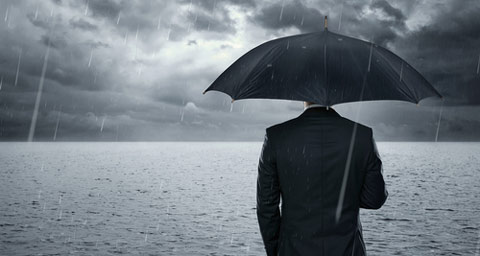For those who live hurricane areas, you need to be aware of the potential dangers that you face during a hurricane.

Hurricanes are not something that should be taken lightly. Even Tropical Storm related rain and winds are enough to wreak havoc on a community. From downed power lines to flash floods and flooding, the initial storm surge can cause a number of problems that you need to be prepared for.
If you are not evacuating, you need to be prepared to survive in your home for at least 14 days without food, water or power. The government often recommends that you need at least 72 hours’ worth of supplies, but based on past storms this number is nowhere near what you should prepare for.
Supplies to stock up on to survive a hurricane
Think about what things you would take on a camping trip, one where you had no access to power or water. These are the type of things that you’ll want to stock up on, because you’ll probably be camping out in your home for at least a couple of days following the storm.
Lighting the way. Candles, lanterns and flashlights are all essential during a hurricane. Make sure you have a number of them on hand, and don’t forget to stock up on extra batteries.
Generator – If you can afford one, a generator sure makes things a lot easier during a power outage. Just remember to keep it away from your home and away from windows so the dangerous exhaust fumes don’t blow back into your house.
Canned Food – Having canned food that can be eaten right out of the can is always a good idea. Not only can it be eaten without cooking, but it can make life easier and give you less to worry about after a storm. Just make sure to have a couple can openers on hand, or buy cans with easy open pop tops.
Hurricane Preparedness – Tips to survive a hurricane
If you can evacuate, you probably should go. In my opinion, no amount of stuff is worth losing your life. In the case of a major hurricane, it’s often best to listen to evacuation warnings, especially if you live in an area that’s prone to flooding. And don’t wait until the last-minute, or you could end up stuck in traffic on the highway when the storm hits.
If you’re planning on hunkering down, you need to have enough supplies to survive 14 days without food, water, or power.
During the storm, take shelter in a small interior rooms, closets, or areas without windows — preferably on the lower levels of your home.
The higher you are during the storm, the worse the winds will become. If you live in a high-rise building, you need to find somewhere else to go.
If you can, try to secure your home by boarding up windows with at least 5/8 inch marine grade plywood.
Secure everything that’s outside your home that could turn into a dangerous projectile during the storm. Strap down, or bring in any anything that you don’t want to fly away.
If you expect major flooding it might be a good idea to temporarily turn off your utilities at the main switches or valves.
If you don’t have a large amount of water on hand, fill up as many containers as you can before the storm hits. Tap water usually becomes unsafe after major storms, so you’ll want to have as much water on hand as you can store. Pots, pans, and even your bathtub can be a great way to store extra water.
Beware of the calm in the middle of the storm. A lot of people get into trouble because they drop their guard when it seem like things have calmed down. Remember, when the eye of the storm is overhead it can look like the storm has passed. In reality, there’s more to come; and what’s coming can often be worse than what’s already passed.
After the Storm:
Avoid floodwater. Floodwater often contains things that are hazardous to your health. From raw sewage to oil, gasoline and other potential dangers like downed power lines, the last thing you want to do is go walking through floodwater.
Be on the lookout for looters or anyone who looks like they should not be in your neighborhood. Natural disasters can often bring out people who are looking for easy opportunities to rob and steal, so make sure you’re ready to defend your home and your family.
Monitor your weather radio or emergency radio. Make sure you monitor the situation so you know if things are getting better or worse. Knowledge is power, so make sure you know what’s going on around you.
Just because the hurricane passes don’t assume that the dangers have passed. From looters to floodwater, your troubles may have just begun. Don’t let your guard down just yet.



